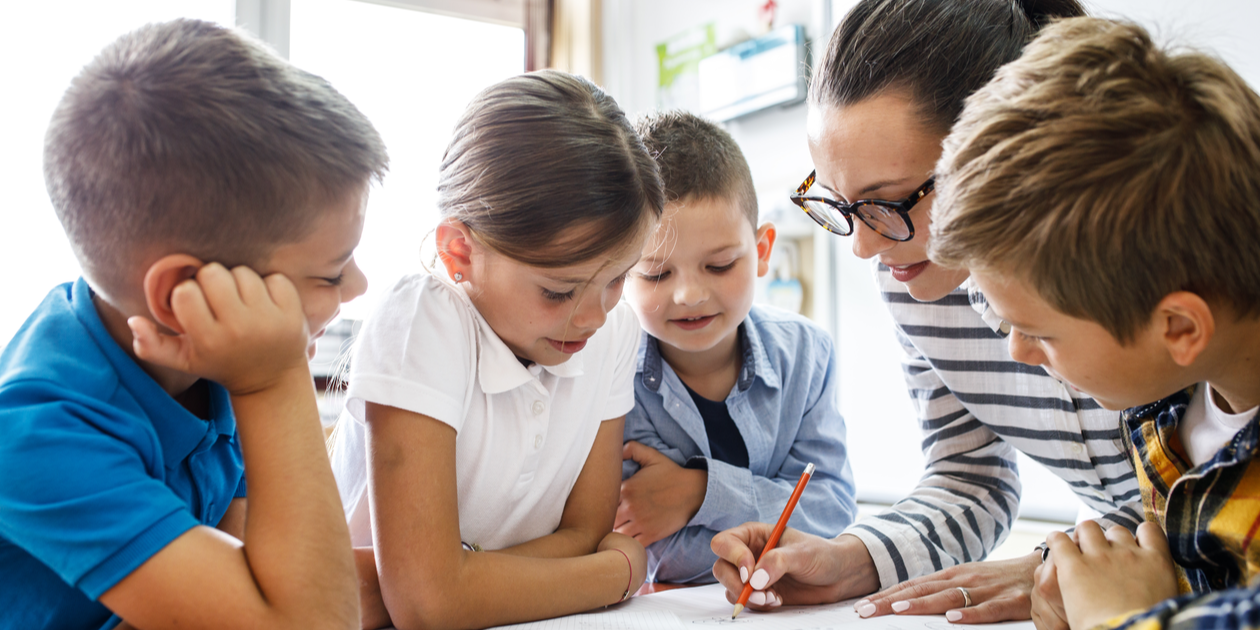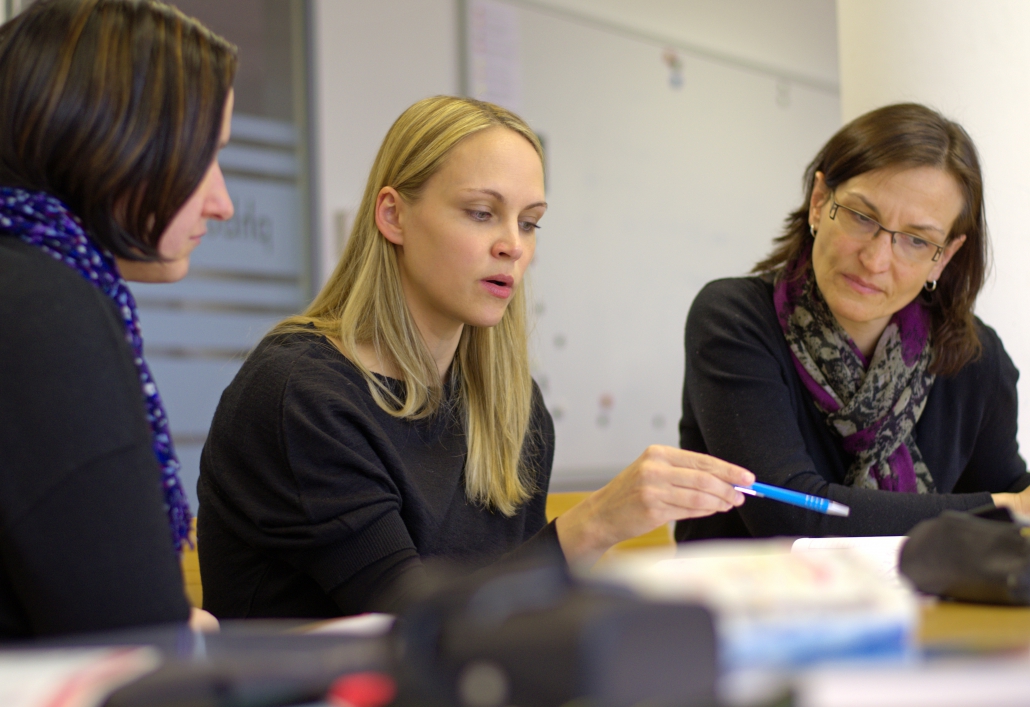5 things teachers ask me about Auditory Memory
by Martha Currie on Jun 4, 2019

Difficulties with Auditory memory can have a significant impact on a pupil’s ability to attend and learn at the same rate as the rest of their class.
I have worked as a speech and language therapist for a number of years offering advice to teachers about what exactly auditory memory is and what are the best ways to support children struggling with these difficulties.Here are the top five questions I am asked by educators about auditory memory. If you have any comments or further questions please feel free to ask me at the bottom of this blog.
1. What is auditory memory?
Auditory memory involves being able to take in the information presented orally (i.e spoken), to process that information, store it in your mind and then recall the information when you need to. Basically, it involves the skills of attending, listening, processing, storing and recalling. A large percentage of what we teach is presented through the spoken word.
Any pupil struggling with any level of auditory memory is going to miss out on key messages without our support so it’s important we have a good understanding of what it is.
2. What are auditory memory difficulties?
Pupils with auditory memory difficulties will only pick up parts of what is being said during a lesson and they will find recalling this information later on very difficult. They will often experience difficulty developing a good understanding of words and remembering specific vocabulary that has been presented to them orally.
Children with weak auditory memory skills are unable to remember and apply crucial information in order to move to the next step of a task. They falter when a task requires that they remember a series of directions, generate ideas in response to the directions and then express their ideas. Information just doesn’t “stick” for them. It’s important to note that Auditory memory difficulties are different from auditory processing disorder, but strategies advised to use with those with APD can be useful for pupil’s with auditory memory difficulties too. You can find out more about auditory processing disorder here.

3. Do visuals help pupils with auditory memory problems?
Yes, in fact, recent research from the University of Iowa have found that when it comes to memory, we don’t remember things we hear nearly as well as things we see or touch.
“We tend to think that the parts of our brain wired for memory are integrated. But these findings indicate our brain may use separate pathways to process information. Even more, our study suggests the brain may process auditory information differently than visual and tactile information”.
The results of this research reinforce the importance of multisensory learning and demonstrate that visual and tactile support can be very important. The use of visual support in the forms of visual timetables, props, pictures and video can enhance the learning experience for all students not just those with auditory memory difficulties.
Similarly, using technology that combines multisensory and multimedia components require students to touch and move their fingers over the screen to access videos, voiceovers, and additional text can enable multisensory processing.

4. Does auditory memory affect pupils with ADHD more than other pupils?
This is a tricky question as research efforts to establish a set of common behaviours in children with ADHD has produced mixed results. However, most people agree significant weaknesses across certain areas such as response inhibition, vigilance, auditory memory, and planning have been consistently reported in study samples of ADHD. (Nigg, Willcutt, Doyle, & Sounga-Barke, 2005; Willcutt, Doyle, Nigg, Faraone, & Pennington, 2005).
In addition, auditory attention is a prerequisite for the development of the auditory memory process. So it is critical that a pupil has auditory attention in order to develop auditory memory and in turn, comprehension skills. For many pupils with ADHD, they struggle to attend to information presented orally. This can impact their ability to remember key instructions and to complete tasks without visual prompting.
5. How can I support pupils with poor auditory memory?
Self talk
This is a strategy we know we all do as typical language learners and listeners. We use self-talk to help us remember things and we can help pupils with poor auditory memory skills remember things in the same way. For example, we might begin by having a pupil repeat a list of objects, pictures, words or even directions out loud. It gives them a chance to use that rehearsal strategy, which is a vocal rehearsal strategy in this case, since they will say back what they heard.
As you move forward, you can have the child rehearse that information to himself, then he moves to whisper it or saying the information or quietly, and then not saying it at all but repeating it in his head.Help compensate for a weakness
Help compensate for a weakness
Break up or chunk information. This takes up fewer “slots” in working auditory working memory. For example, give one or two instructions rather than a long string of them. If auditory working memory is weak, don’t expect them to depend on it for important things. Encourage them to advocate for their needs by asking teachers for this kind of “information management.”
Encourage self advocacy
Get the pupil to understand their difficulty and the strategies that are most effective for them. That way they can tell staff and peers that “sometimes I have trouble remembering things, could you repeat that please?”.
You could encourage the pupil to carry a notebook around and ask them to write down key messages they will need to recall in order to carry out tasks. Using a timetable and dairy will also help the pupil remember where they have to be at certain times of the day. For younger pupils, a visual timetable is a useful support.
- General mental health (35)
- General Speech & Language (32)
- School Issues (26)
- Counselling (24)
- Primary Schools (24)
- Classroom Behaviour (23)
- Anxiety (22)
- Speech and Language Therapy (22)
- Absenteeism (20)
- SENCOs (20)
- Safeguarding (17)
- Secondary & Sixth Form Schools (16)
- Social Communication (16)
- Funding (14)
- MATs (14)
- Generalised anxiety (13)
- Autism Support (10)
- Language Delay/Disorder (10)
- Relationship Issues (10)
- SEMH (10)
- ADHD Support (7)
- Speech Sounds (7)
- AAC (6)
- Autism (5)
- Hearing Impairment (5)
- Depression (4)
- Selective Mutism (4)
- Anger (3)
- Cleft Lip/Palate (3)
- Downs Syndrome (2)
- Ofsted (2)
- Phobias (2)
- Stammering (2)
- Loss (1)
- Self-Harm (1)
- Suicidal Thoughts (1)
You may also like
These related stories

A Teacher's Guide to Supporting Pupils with Auditory Memory Problems

How do you measure the impact of speech and language therapy?
